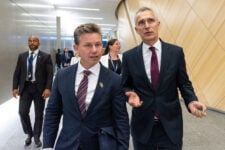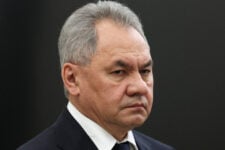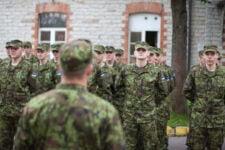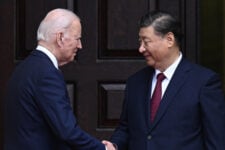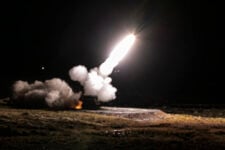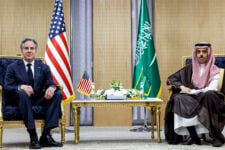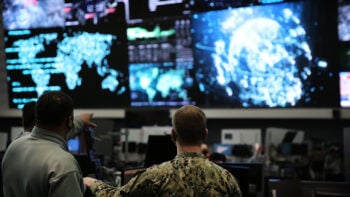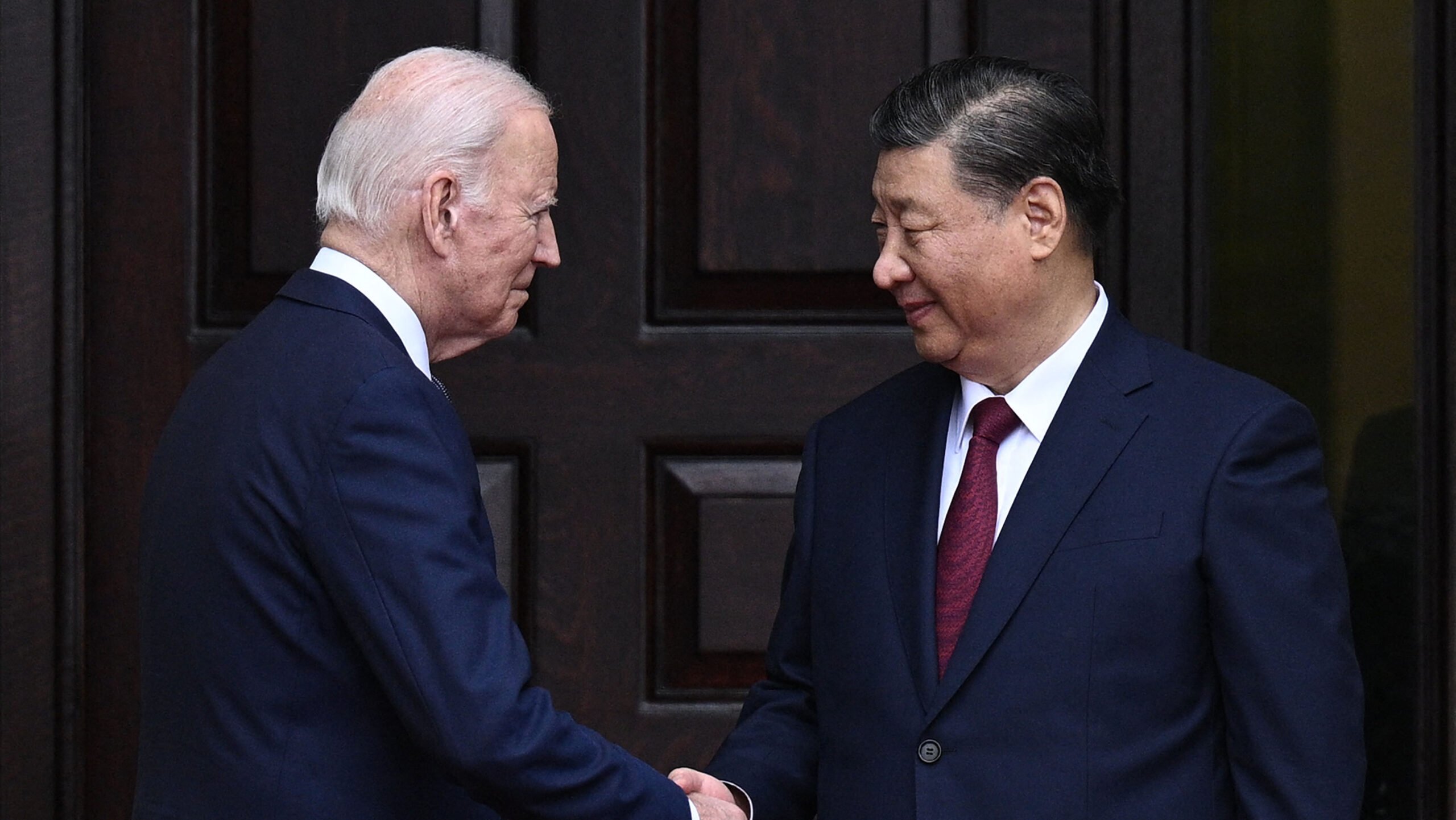
US President Joe Biden greets Chinese President Xi Jinping before a meeting during the Asia-Pacific Economic Cooperation (APEC) Leaders’ week in Woodside, California on November 15, 2023. (BRENDAN SMIALOWSKI/AFP via Getty Images)
WASHINGTON — With both the US and China making artificial intelligence a central element of their strategic competition, the two superpowers will meet in Geneva on Tuesday to discuss the risks of the rapidly advancing technology.
First hinted at by President Joe Biden after his summit with Chinese President Xi Jinping last November, the “exchange of views” is not expected to lead to any binding commitments or public announcements, senior administration officials told reporters. Instead, the goal seems to be a greater understanding between the nuclear-armed rivals on how each perceives the potential risks of AI.
The US delegation will be led by mid-tier officials: the National Security Council’s senior director for technology, Tarun Chhabra, and the State Department’s acting special envoy for critical and emerging technology, Seth Center (who does not hold ambassadorial rank). Their Chinese counterparts will come from the Ministry of Foreign Affairs and the National Development and Reform Commission, a powerful economic body. Other agencies will participate on both sides, but there were no specifics as to whether the Defense Department or its Chinese counterparts would be represented.
Overall, the officials who briefed the press declined to give details on the agenda and seemed at pains to lower expectations.
“The talks are not going to be focused on any particular deliverables, but rather an exchange of views on the technical risks of AI, as an opportunity to directly communicate on respective areas of concern,” one official said. “We’re not looking to develop a joint statement.”
Further, the official emphasized, “our talks with Beijing are not focused on promoting any form of technical collaboration, for cooperating on frontier research in any matter, and our technology protection policies are not up for negotiation.”
Still, “we do think it is worth opening a channel for communication on these issues.”
RELATED: Can tech reduce civilian deaths in conflict? Mark Milley isn’t so sure.
What issues? “Emerging…risks associated with advanced artificial intelligence,” the official said. “We’ll also discuss respective domestic approaches to addressing those risks, explain our approach to normative principles of AI safety, as well as our respective views on the role of international governance.”
The officials demurred when reporters asked about specific topics.
Would the two superpowers work to forswear the use of AI to command, control, and operate their nuclear arsenals? “This is the first meeting of its kind, so we expect to have a discussion of the full range of risks, but wouldn’t pre-judge any specifics at this point.”
Deepfakes and AI-driven misinformation in the 2020 elections? “The subject of election interference or influence has come in previous engagements… but that is not specifically on the agenda,” an official said.
Chinese hacking and espionage aimed at stealing cutting-edge AI? “The White House doesn’t get involved in law enforcement kind of issues,” an official said, “but… there will be a discussion on our concerns, on their concerns, on a range of issues related to AI.
The officials did not mention the Defense and State Departments’ push for “responsible” military use of AI and automation, to which some 53 countries have signed on — not including China. Instead, they put the Geneva talks in context of broader, civilian-led discussions of “AI safety:” President Biden’s Executive Order and the G7 statement on AI, both in October; the UK-led Bletchley Declaration in November; and a UN General Assembly resolution on AI for sustainable development passed by unanimous consent in March.
“The US and PRC were both engaged at the UK safety summit and in negotiating the resulting outcomes of that summit,” one official said. “The United States negotiated very hard with the PRC at the United Nations over the text of AI resolution in New York. So in that respect, we are already engaged in AI diplomacy.”
“The world does expect us to talk about AI, and many of our closest partners are engaged directly themselves already with China on the range of AI issues,” the official continued. “We’ve consulted quite extensively with our allies and partners in advance of these talks, and they certainly understand the purposes, intent and limited nature of this dialog.”
The talks with China are “fundamentally different from our more comprehensive and intensive” collaboration with “like-minded partners,” the official said. With China, they went on, “we are in a competition to shape the rules of the road, but also to explore if some of the rules can be embraced by all countries.”
So while China is hardly an unproblematic partner, the officials emphasized the two rival superpowers still need to talk. “Intense competition requires intense diplomacy to reduce the risk of miscalculation and unintended conflict,” one said. “This is particularly true in the case of AI.”



